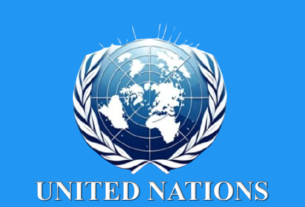On International Women’s Day, we not only recognize the achievements and progress women’s rights have made, but also the constant threats and backlash they face around the globe.
In multiple countries, rights have been rolled back in recent years with anti-feminist rhetoric and policies. According to UN Women, gender disparities are worsening. They believe it could take another 286 years to close the global gender gaps in legal protections for women and girls.
The global scope and scale of this backlash requires attention and response from governments.
In Afghanistan, the Taliban have banned women and teenage girls from taking part in many aspects of daily life, restricting them from attending secondary school and universities, working in many jobs, and even moving freely outside of the home.
In China, the government has silenced feminists as it tightens social control, imposing strict censorship policies, including by banning feminist terms and content they see as “harmful speech” or “inciting conflict between the genders.”
In Poland, the government under the ruling party has actively targeted women’s rights activists and organizations, smearing them and punishing them for their activism. The government has spearheaded retrogressive laws and policies, obstructing efforts to address gender-based violence, and using its politically compromised Constitutional Tribunal to undermine women’s and girls’ reproductive rights.
In the United States, women and girls are facing increasing restrictions to their sexual and reproductive health and rights as the Supreme Court and multiple states have moved to ban or heavily restrict access to legal abortions.
South Korea’s government has been considering a series of anti-feminist initiatives, including a pledge to abolish the Ministry of Gender Equality and Family. Disregarding the harsh realities that women and girls face, the term “women” is being eliminated from policies that initially addressed gendered discrimination, such as violence against women.
Pakistan’s annual Aurat March in honor of International Women’s Day has been the target of extremist backlash by the Pakistani Taliban, which have previously threatened women’s rights activists and the march’s organizers, demanding they be prosecuted for blasphemy.
These are some examples of the backlash women’s human rights face across the world. On this 111th International Women’s Day, we call on governments to recognize the global threat to women’s rights and reinforce measures to protect women and girls according to international standards.



